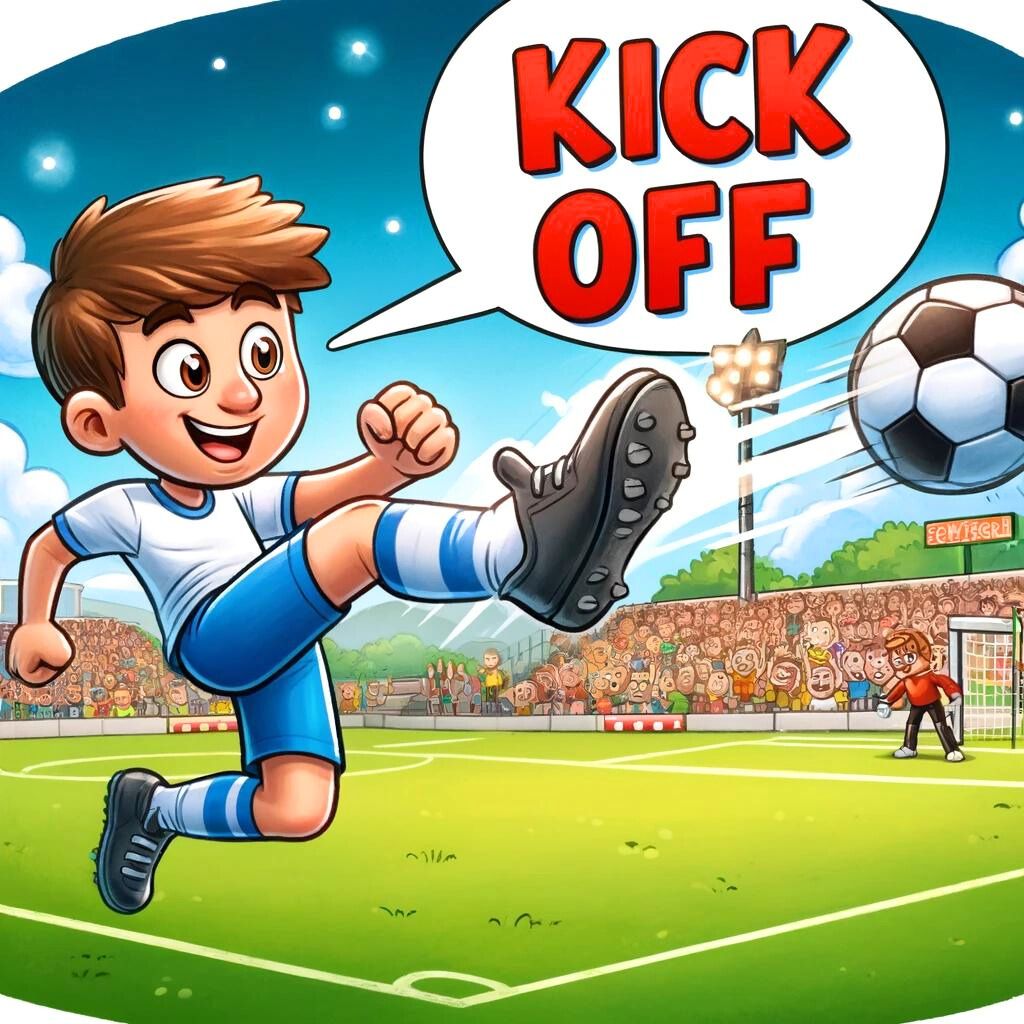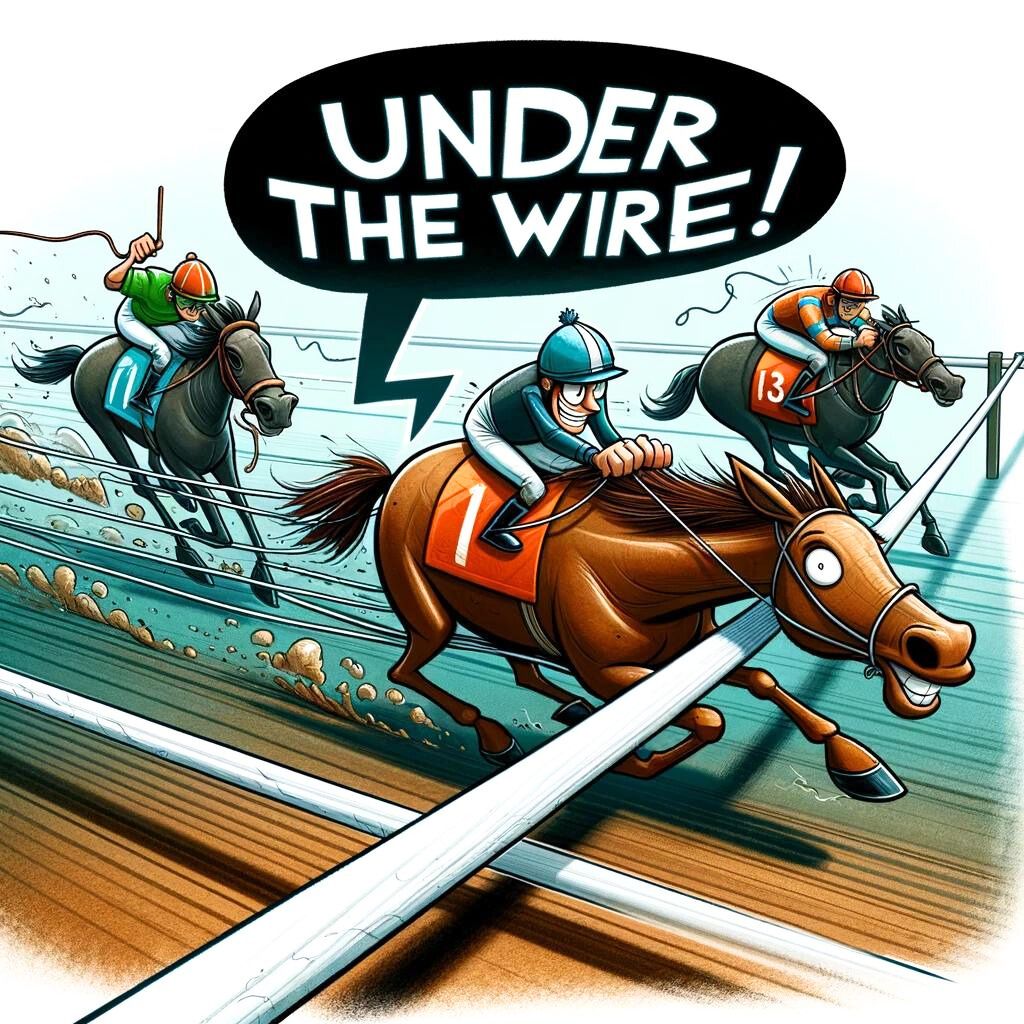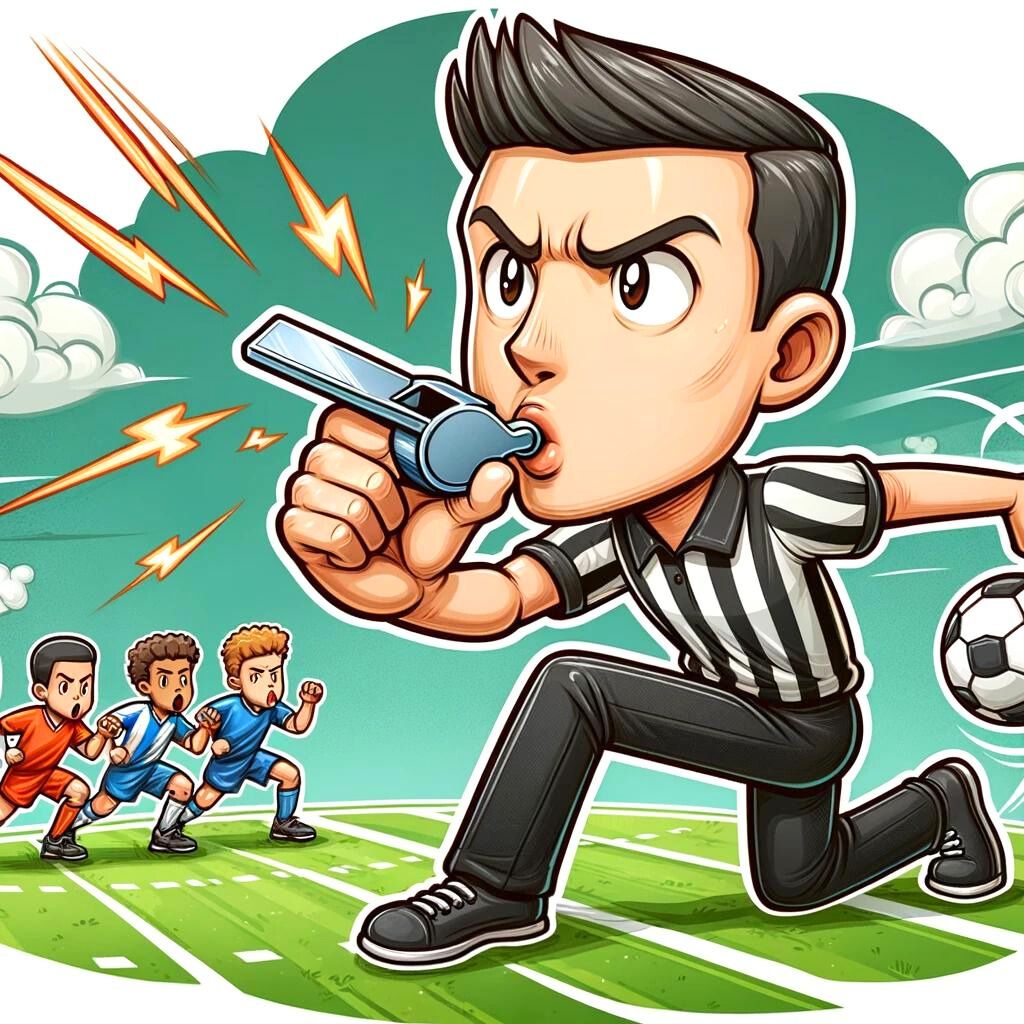Are you ready to level up your lingo and score some conversational points?
Dive into the world of sports idioms, where language meets the playing field!
Whether you’re a linguistic rookie or a seasoned wordsmith, these 20 sports idioms will have you talking like a pro and winning every chat game.
So, put on your verbal cleats and get ready to play ball with your vocabulary!
1. Hit a Home Run
The idiom “hit a home run” is used to describe achieving great success or doing something exceptionally well. This phrase is often used in both professional and casual contexts to highlight a significant accomplishment.
It originates from baseball, where hitting a home run is a notable achievement because it allows the batter to round all bases and score a point. This idiom emphasizes triumph and excellence.
Using “hit a home run” in conversation adds a sporty flair and communicates that someone has excelled beyond expectations.
Example 1: “Sarah hit a home run with her presentation; the clients were thrilled.”
Example 2: “After months of hard work, John finally hit a home run with his project proposal, and it got approved.”
2. Drop the Ball
The idiom “drop the ball” means to make a mistake or fail to meet expectations. It’s commonly used in both personal and professional settings to indicate that someone has not fulfilled their responsibilities.
This phrase comes from sports, particularly from ball games where dropping the ball signifies a mishap or error.
Using this idiom in conversation signals a lapse or failure, often with a tone of disappointment or frustration.
Example 1: “I really dropped the ball on that deadline; I need to manage my time better.”
Example 2: “The team dropped the ball during the presentation, and we lost the client.”
3. Throw in the Towel
“Throw in the towel” means to give up or admit defeat. This idiom is frequently used when someone decides to stop trying after repeated efforts.
It originates from boxing, where a trainer throws a towel into the ring to signal that their fighter cannot continue.
This idiom conveys a sense of surrender and finality, often used in a sympathetic or resigned tone.
Example 1: “After struggling with the project for weeks, Maria decided to throw in the towel.”
Example 2: “We were losing badly, so the coach threw in the towel to prevent further injuries.”
4. Get the Ball Rolling
To “get the ball rolling” means to start something, especially a project or process. It’s often used to encourage action and initiate progress.
This idiom likely comes from games where getting the ball moving is the first step to start the play.
Using it in conversation adds an energetic and proactive tone, emphasizing the importance of taking the first step.
Example 1: “Let’s get the ball rolling on the new marketing campaign.”
Example 2: “We need to get the ball rolling if we want to meet the deadline.”
5. Kick Off
The idiom “kick off” means to begin or start an event or activity. It’s commonly used in both casual and formal contexts to denote the start of something significant.
This phrase originates from soccer, where the game starts with a kick-off.
Using “kick off” in conversation adds a dynamic and anticipatory tone, signaling the commencement of an activity.
Example 1: “We’ll kick off the meeting with a brief overview of our goals.”
Example 2: “The festival will kick off with a parade on Friday evening.”
6. Level Playing Field
A “level playing field” refers to a fair competition where no one has an advantage over the others. This idiom is often used in discussions about fairness and equality.
It comes from sports, where a level playing field ensures all players have an equal chance to compete.
Using this phrase emphasizes the importance of fairness and impartiality in various situations.
Example 1: “We need to ensure a level playing field for all candidates in the job selection process.”
Example 2: “The new regulations aim to create a level playing field for small businesses.”
7. Out of Left Field
“Out of left field” describes something unexpected or surprising. It’s often used to refer to ideas or events that come as a shock.
This idiom originates from baseball, where a ball hit to left field can catch players off guard.
Using this phrase adds an element of surprise and unpredictability to the conversation.
Example 1: “His suggestion came out of left field and surprised everyone in the meeting.”
Example 2: “The news about the merger was completely out of left field.”
8. On the Ball
Being “on the ball” means being alert, competent, and efficient. This idiom is used to compliment someone on their attentiveness and skill.
It likely comes from sports, where keeping an eye on the ball is crucial for good performance.
Using this phrase in conversation highlights someone’s preparedness and capability.
Example 1: “You’ve been really on the ball with these reports lately.”
Example 2: “The new manager is really on the ball; she’s already implemented several improvements.”
9. Under the Wire
“Under the wire” means completing something just in time or narrowly meeting a deadline. This idiom is often used in high-pressure situations where timing is critical.
The phrase comes from horse racing, where the finish line is often marked by a wire.
Using it conveys a sense of urgency and last-minute success.
Example 1: “We submitted the proposal just under the wire.”
Example 2: “He finished his exam under the wire with only seconds to spare.”
10. Par for the Course
“Par for the course” means something is typical or expected. It’s often used to describe situations that are normal, even if they’re not ideal.
This idiom originates from golf, where “par” is the standard number of strokes to complete a hole.
Using it indicates that a situation is not surprising and is in line with what is usually expected.
Example 1: “Delays are par for the course when dealing with government agencies.”
Example 2: “His lateness is par for the course; he’s never on time.”
11. Play Hardball
To “play hardball” means to act aggressively or ruthlessly, especially in negotiations or competitions. This idiom is used to describe someone who is tough and uncompromising.
The phrase comes from baseball, where hardball is the traditional, more challenging version of the game compared to softball.
Using this idiom adds a sense of intensity and determination to the conversation.
Example 1: “During the contract negotiations, they decided to play hardball.”
Example 2: “If you want to win this deal, you’ll need to play hardball.”
12. In the Ballpark
Being “in the ballpark” means being within a reasonable range or estimate. This idiom is used to indicate that something is close to the correct amount or value.
It originates from baseball, where being within the ballpark is close enough to be considered.
Using this phrase conveys approximation and relative accuracy.
Example 1: “The cost estimate you provided is in the ballpark of what we expected.”
Example 2: “Her guess was in the ballpark, but not exactly right.”
13. Keep Your Eye on the Ball
To “keep your eye on the ball” means to stay focused and attentive. This idiom is used to advise someone to concentrate on their goal or task.
It comes from sports, where focusing on the ball is crucial for good performance.
Using this phrase emphasizes the importance of concentration and vigilance.
Example 1: “We need to keep our eye on the ball if we want to meet our targets.”
Example 2: “Despite the distractions, she kept her eye on the ball and finished the project.”
14. Touch Base
“Touch base” means to make contact or check in with someone, usually briefly. This idiom is commonly used in business and casual conversations to suggest reconnecting.
The phrase comes from baseball, where players must touch bases to score.
Using it in conversation adds a friendly and informal tone to the idea of checking in.
Example 1: “Let’s touch base next week to discuss the project.”
Example 2: “I just wanted to touch base and see how you’re doing.”
15. Behind the Eight Ball
Being “behind the eight ball” means being in a difficult or disadvantageous position. This idiom is used to describe situations where one is at a disadvantage and needs to overcome significant challenges.
It originates from pool, where being behind the eight ball puts a player in a tough spot.
Using this phrase conveys a sense of struggle and adversity.
Example 1: “With all these setbacks, we’re really behind the eight ball.”
Example 2: “She felt behind the eight ball after missing several classes.”
16. Throw a Curveball
To “throw a curveball” means to introduce an unexpected element or surprise. This idiom is often used to describe situations where something unpredictable occurs.
It comes from baseball, where a curveball is a pitch that moves unexpectedly.
Using this phrase adds a sense of unpredictability and surprise to the conversation.
Example 1: “The sudden change in plans really threw me a curveball.”
Example 2: “Just when we thought we had it figured out, they threw a curveball.”
17. Blow the Whistle
“Blow the whistle” means to report misconduct or alert others to wrongdoing. This idiom is often used in the context of exposing unethical or illegal activities.
It originates from sports, where referees blow a whistle to stop play and signal a violation.
Using this phrase highlights the act of calling out or revealing issues.
Example 1: “She decided to blow the whistle on the company’s illegal practices.”
Example 2: “After witnessing the fraud, he blew the whistle to the authorities.”
18. Team Player
A “team player” is someone who works well with others and puts the team’s goals ahead of personal ambitions. This idiom is used to describe cooperative and collaborative individuals.
It comes from sports, where teamwork is essential for success.
Using this phrase in conversation highlights the importance of cooperation and unity.
Example 1: “Jane is a real team player; she always supports her colleagues.”
Example 2: “We need a team player for this project to ensure smooth collaboration.”
19. Benchwarmer
A “benchwarmer” is someone who is not actively participating or is often left out of the main action. This idiom is used to describe someone who is on the sidelines rather than in the thick of things.
It originates from sports, where players who do not participate in the game often warm the bench.
Using this phrase conveys a sense of inactivity or marginalization.
Example 1: “Tom felt like a benchwarmer at the new job, waiting for meaningful tasks.”
Example 2: “She’s too talented to be a benchwarmer; she deserves more responsibility.”
20. The Ball Is in Your Court
“The ball is in your court” means it’s your decision or responsibility to act. This idiom is used to indicate that the next move or decision is up to the other person.
It comes from tennis, where the ball being in your court means it’s your turn to play.
Using this phrase emphasizes personal responsibility and initiative.
Example 1: “I’ve given you all the information; now the ball is in your court.”
Example 2: “After presenting our proposal, we told the client that the ball is in their court.”

Hey fellow Linguaholics! It’s me, Marcel. I am the proud owner of linguaholic.com. Languages have always been my passion and I have studied Linguistics, Computational Linguistics and Sinology at the University of Zurich. It is my utmost pleasure to share with all of you guys what I know about languages and linguistics in general.











